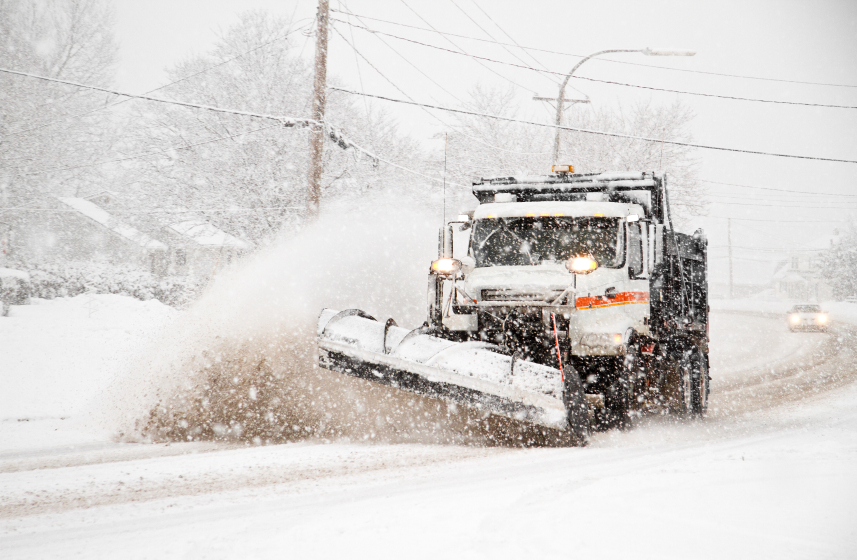AARP Hearing Center

The Massachusetts Emergency Management Agency (MEMA) has issued safety tips based on severe cold weather and additional snowfall predicted for the region.
The National Weather Service (NWS) has issued Wind Chill Advisories throughout the state for the remainder of the week. Temperatures are expected to plummet, and wind chills may reach -25 degrees in some areas.
To ensure residents are prepared for these extreme temperatures, the Massachusetts Emergency Management Agency (MEMA) has released safety tips (below).
At AARP Massachusetts, we urge all our members and friends to heed these safety precautions, and to remember to check in on elderly friends, relatives, and neighbors, before, during, and after the storms and period of severe cold temperatures.
MEMA Safety Tips:
- Closely monitor local news reports for updates on weather forecasts and storm impacts.
- Make sure you have a well-stocked Winter Home Emergency Supply Kit that includes flashlights, portable radio, extra batteries, a first aid kit, bottled water, non-perishable food and a manual can opener.
- Minimize outside activities, particularly the elderly and very young and remember to consider your pets.
- Dress in several layers of loose-fitting, lightweight clothing, rather than a single layer of heavy clothing. Outer garments should be tightly woven and water repellent. Wear a hat, mittens and sturdy waterproof boots, protecting your extremities. Cover your mouth with a scarf to protect your lungs.
- Excessive exposure can lead to frostbite, which is damaging to body tissue that is frozen. Frostbite causes a loss of feeling and a pale appearance in extremities, such as fingers, toes, ear lobes or the tip of the nose. If symptoms are detected, seek medical help immediately.
- Hypothermia can occur in extreme cases. The warning signs are uncontrollable shivering, memory loss, disorientation, incoherence, slurred speech, drowsiness and apparent exhaustion. If the person’s temperature drops below 95 degrees, seek immediate medical care.
- Ensure you have sufficient heating fuel, as well as emergency heating equipment in case you lose electricity.
- When utilizing alternate heating sources, such as your fireplace, wood stove or space heater, take the necessary safety precautions. Keep a fire extinguisher handy; ensuring everyone knows how to use it properly. Test smoke alarms and Carbon Monoxide (CO) detectors.
- If utilizing an emergency generator, read, understand and follow the manufacturer’s instructions. Always operate emergency generators outdoors and away from any open window. Make sure your generator is properly installed and grounded as you may be liable for damage or injury to other people and property that may result from improperly installed or operated equipment.
- Never use propane or charcoal grills indoors as they pose Carbon Monoxide (CO) and fire risks.
- Clear exhaust vents from Direct Vent Gas Furnace Systems to avoid Carbon Monoxide (CO) poisoning. Also, never run an automobile until the exhaust pipe has been cleared of snow.
- If you lose your heat, seal off unused rooms by stuffing towels in the cracks under the doors. At night, cover windows with extra blankets or sheets.
- Be a good neighbor. Check with elderly or relatives and friends who may need additional assistance to ensure their safety.
- To keep pipes from freezing, wrap them in insulation or layers of newspapers, covering the newspapers with plastic to keep out moisture. Allow a trickle of warm water to run from a faucet that is farthest from your water meter or one that has frozen in the past. This will keep the water moving so that it cannot freeze. Learn how to shut off your water if a pipe bursts.
- If pipes freeze, remove insulation, completely open all faucets and pour hot water over the pipes or wrap them with towels soaked in hot water, starting where they are most exposed to the cold. A hand-held hair dryer, used with caution, also works well.
- If you use medical equipment in your home that requires electricity, talk to your health care provider about how you can prepare for its use during a power outage. Ensure you have extra batteries for medical equipment and assistive devices.
- If you have life-support devices that depend on electricity, contact your local electric company about your power needs for life-support devices (home dialysis, suction, breathing machines, etc.) in advance of an emergency. Some utility companies will put you on a "priority reconnection service" list. Talk to your equipment suppliers about your power options and also let your local fire department know that you are dependent on life-support devices.
- Make sure your car is properly winterized. Keep the gas tank at least half-full. Carry a Winter Emergency Car Kit in the trunk including blankets, extra clothing, flashlight with spare batteries, a can and waterproof matches (to melt snow for drinking water), non-perishable foods, windshields scraper, shovel, sand, towrope and jumper cables.
- Call the Information Telephone Service 2-1-1 for non-emergency storm-related questions.
MEMA is the state agency charged with ensuring the state is prepared to withstand, respond to, and recover from all types of emergencies and disasters, including natural hazards, accidents, deliberate attacks, and technological and infrastructure failures.































































